
Curious what an influencer is? Let’s start with a definition.
An influencer is someone with the power to affect (or influence) buying decisions due to their authority or public position.
Influencers are also content creators, publishing regular reviews, videos, and blog posts to engage their audience and encourage sales.
Many influencers are minor celebs, but many stars like Kylie Jenner and Dwayne Johnson, for example, are also influencers due to their-mega popularity and their huge audiences.
Before we get down to what an influencer team could do for your business, let’s look at this growing trend.
Impact of Social Media Influencers
Influencers, or content creators, if you prefer, are growing strong, and the worldwide marketing size now exceeds $16.4 billion.
These days, there’s no doubting the impact of influencers.
Research shows that consumers spend more time interacting with influencers, and they find the content ‘appropriate’ and ‘helpful’.
Consumers’ interest in influencers doesn’t end there, though.
Matter Communications research found that most (82 percent) shoppers have purchased, researched, or considered purchasing a product after influencers, family, or friends have talked about it online.
Additionally, according to the study, consumers are most interested in reading posts from influencers about:
- Food and beverages
- Health and wellness
- Personal technology
- Consumer goods
- Beauty and personal care
- Babies/kids
Commenting on the study, Matter President, Mandy Maidenoff, said:
“Brands of all sizes are grappling with how to shift or amplify their marketing, PR and social media strategies to adapt right now, and a challenge for many is how to authentically connect with consumers…Our data makes one thing clear: influencer marketing presents a unique and timely opportunity for companies to engage with a thoughtful, nuanced approach.”
I could go on, because there’s plenty of evidence available that shows the impact of social media influencers on brands.
However, why are influencers so popular? It’s quite simple, really.
It’s because a recommendation from an influencer works just like a personal one would, and online, the effect gets amplified.
By providing the power of an industry expert with a loyal following primed and ready to listen to their suggestions, these influencers can drive fast sales from relevant traffic sources, and that’s why influencers are one of my favorite ways to grow a business.
However, this doesn’t mean paying Kim Kardashian to post about your SaaS product. Instead, keep your focus on relevant, accessible influencers who can bring value and growth to your brand. Here’s how you can grow an influencer team for your company (and why you need them).
Why You Need Influencers in Your Marketing Strategy
Let me start off by telling you a story.
I recently went through the dreaded process of getting a new computer for both business and personal work.
Mine was breaking down, it was slow, and I couldn’t take it anymore. I reached out to a bunch of friends and fellow entrepreneurs to get their thoughts on what computers were the best.
A bunch of them suggested getting an Apple, but some said to buy a PC. No real specifics, just general ideas.
I left most of the conversations more confused than when they started.
I did tons of research online, scouring review sites for the best information, and it got me nowhere.
I still hadn’t made a purchase decision.
Until one friend told me to buy the 4k iMac from Apple.
Since my research had gone nowhere fast, I bought it.
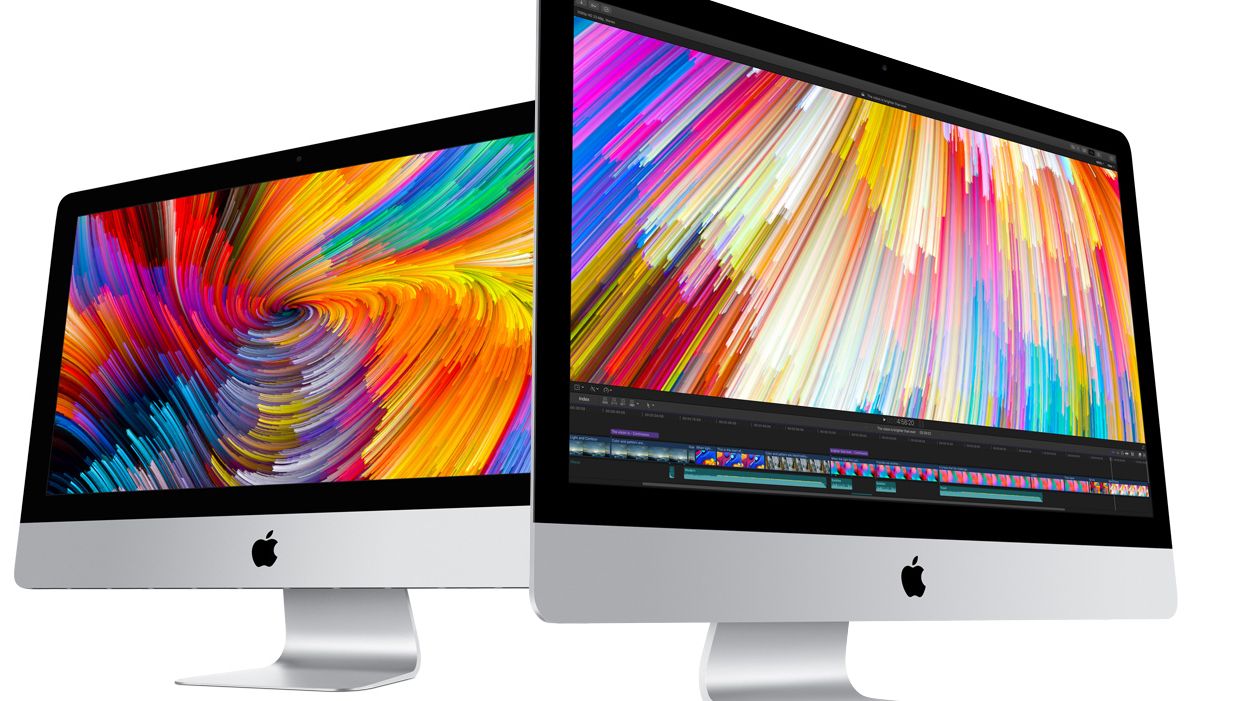
Now I use it daily and love it.
The point is:
My friend influenced me to buy this product, and millions of purchases like this story happen daily worldwide, which brings me back to the whole point of this article: Influencer marketing is one of the best ways for marketers to grow their businesses.
I’ve not only found great success using influencers but have also participated in being an influencer.
It’s a great way to share products and content that you love and to get others to jump on board, too, and brands are spending big on influencers. Insider Intelligence predicts spending on United States influencer marketing increasing to $4.14 billion in 2022. Spending will increase from 2023 to approximately $5 billion.
Why? Typical advertising outlets aren’t working as well anymore.
Banner blindness is killing the display advertising strategies that we’ve come to know and love.
People are sick and tired of invasive ads. We see so many every day that we subconsciously tune them out or we block them.
Research shows 67 percent of consumers feel the quality of web advertising is declining, while desktop adblocking increased eight percent to 257 million. Mobile users are tired of ads, too, with the number of mobile users blocking ads increasing by 10 percent to a total 586 million.
It should be clear by now: If you’re relying on traditional advertising to fuel your business growth, these stats should sound alarm bells because it means people don’t want to see your ads anymore! They are annoying, plain, and simple.
That’s why you need an influencer campaign.
PPC display ads are going downhill fast, and I predict the typical advertising streams that once produced your best customers are likely to become non-existent.
You know what that means: If you want to get the word out about your products and develop consumer trust, then that means working with an influencer, to at least some extent.
Here’s another reason to start an Influencer campaign: they help you find a wider range of demographics. Just look at this survey from Rakuten.
It found that the impact of social influencers isn’t only effective at reaching the teenage demographic or promoting the latest trends. Additionally, Rakuten’s study found that seventy-four percent of the parents surveyed had brought an item shared online by a social media influencer.
Why? I’m telling you now that it’s not purely down to trust. It’s because social media influencers build relationships with their audience, turning them into buyers in time.
Even your best display campaigns aren’t going to compare to the minimal effect of average influencer-marketing campaigns, but influencer campaigns are different. People love engaging with their favorite brands on Instagram, YouTube, Facebook, and more, so it’s not a shock that recommendations from these people deliver results.
I’ve clearly detailed the potential power of launching an influencer campaign. Now, let’s move on to the best tactics to use with influencers to grow your brand?
Popular methods tend to include:
- Having influencers conduct product reviews, like Sheoran Ani, who provides written reviews and images, attracting thousands of likes.
- Starting ambassador programs, like Twitch. The brand uses ambassadors who stream live from Twitch and talk to other users through the Twitch speech feature.
- Providing event coverage. Influencer Maris Rodriguez, who shared images and hashtags from the New York Marathon, is a good example.
- Leveraging brand mentions. You can use tools like Google Alerts, other free services like Talkwalker, or Awario, which offers a free trial and monthly subscriptions.
- Creating sponsored content, like Arnell Armon, with over 700,000 followers. Armon regularly gains thousands of likes posting video content about beauty products.
You’ve got some ideas to kick off your campaigns. Are you ready to get started with influencer marketing? Let’s go.
Here’s how you can grow a team of influencers to get your business to the next level.
1. Set Campaign Goals
Setting campaign goals should always be your first step when conducting a new process.
The same goes for building out a team of influencers.
The influencer marketing scene is crowded with tons of famous celebrities who may be tempting to tap into but remember: You need relevant influencers who will drive relevant traffic to your products.
For example, check out beauty and fitness influencer Chanel Delisser. She’s secured partnerships with nutrition company GNC and appeared on TV shows and at conferences.
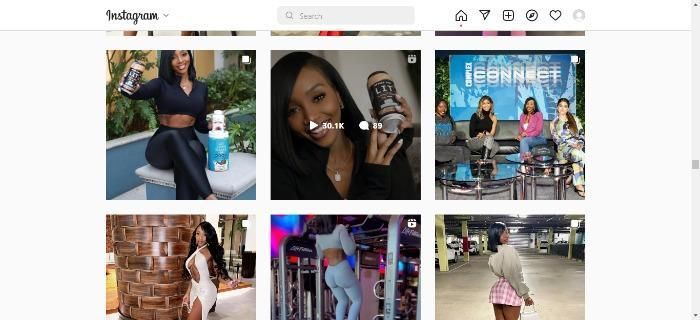
Now, I’m sure Delisser will excuse me for saying this, but she’s not a household name. However, that didn’t stop her from getting 1 million plus followers or getting sponsorships and invites for major events.
The point is, that it makes absolute sense for health-related companies to team up with Delisser.
Her Instagram account advocates a healthy lifestyle, she’s talking to the type of people most likely to buy these products, and she’s got a massive following.
Then there’s the engagement with her Instagram followers. Each post attracts hundreds, if not thousands of views and plenty of comments, so any health company teaming up with Delisser knows she’s got a keen audience ready to engage.
In other words, they make the ideal pairing.
Think about it: If you sell SEO services, using Justin Bieber to spread the word probably wouldn’t do much for your brand besides draining your marketing budget.
The type of influencer you choose will have a huge impact on your success, so it’s imperative that you pick one in your niche or who embodies your audience.
Here’s a basic template that I’ve used to set concrete goals:
Influencer campaign goals
- Influencer background info:
- Name:
- Age range:
- Popular on social media platforms?
- Influencer campaign revenue goal:
- The number of expected posts:
- Which platforms?:
- Special notes:
- Next, you must set realistic (yet specific) goals for the campaign.
- Think about concrete data like:
- This influencer campaign should drive $XX in sales by XX date
- We will spend $XX and get $XX in sales
- This campaign will last XX months to achieve the desired result
- Once you’ve set achievable and realistic goals, it’s time to build your team of influencers.
2. Manually Search for Influencers
According to Later.com, there are several ways to prospect for influencers, You could:
- Turn to a management platform, like Tribe or Upfluencee.
- Find influencers chatting about your business online by searching with hashtags or using social listening tools.
- See who your audience is engaging by monitoring a group of your followers that match your ideal audience.
- Follow industry blogs, newsletters, etc. by finding websites in your niche.
- Monitor appropriate hashtags with free tools, like Brand24.
- Keep within your budget. Use a budget calculator and understand your ROI.
- Look at your competitors. Follow other businesses in your niche and see if they interact with influencers.
- Get community recommendations by posting in forums or asking in Facebook groups.
- Find micro and nano influencers by looking at marketplaces, searching hashtags, or through Google.
- Look at influencers’ KPIs. Begin by looking at follower numbers, likes, and engagement. Or use a tool to see reach and comments etc.
You could also check out databases and marketplaces. However, these often cost money to use or access, so if you can circumvent them, you can cut costs dramatically.
On the other hand, manually searching for influencers is time-consuming. So if you have the extra money in your budget to spend on marketplaces and databases, do it.
If you don’t, you can still find great influencers on your own.
Start by heading to Google and conducting a basic Google search like “mobile app influencers:”

This should turn up some basic results and round-up style list posts like this:
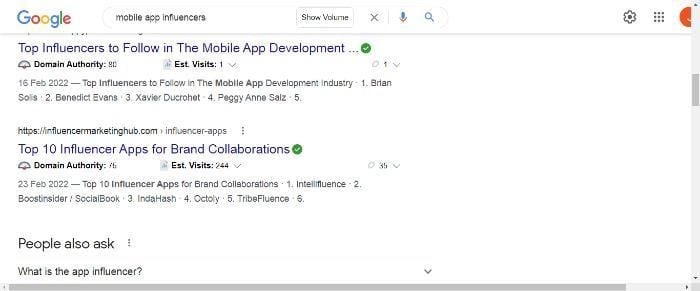
Start reading through these posts and scouring the influencer profiles, like this one featuring Benedict Evans:

Many of them have social links to each person, background information on their career and influencer history, and even aggregate data like their total social following.
You can start a spreadsheet on Google Sheets to keep track of their information and rank them in order of importance.
Another great way to prospect for influencers without using databases or marketplaces is by searching directly on the social media platforms you want to use.
For example, if you want your campaign to focus on Instagram marketing, start by searching for the top Instagram influencers.
You can do this by searching for the following hashtag on Instagram: “#ad:”
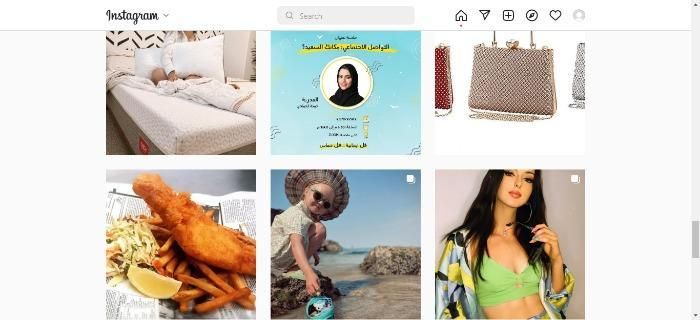
Why? Because all influencers are required by law to make it clear that their post contains an ad for a product or service, that means that you can easily see millions of posts by top influencers with this hashtag.
Start by browsing the photos for related products, services, or influencers who look like their lifestyle would fit your product for promotion.
It’s a great way to find influencers who are already in the game.
For example, if you have a mobile application based on photography, you could target this influencer, who already takes incredible, scenic photos:
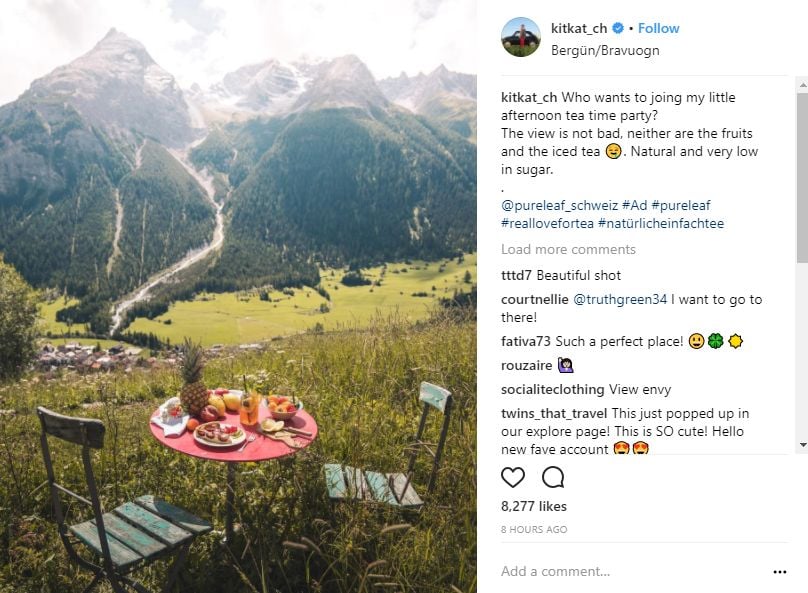
Your photography-based mobile app would be a perfect fit for this influencer because it directly fits the brand image.
Click on the influencer’s profile and check out the rest of their photos:
Inspect their follower totals, their engagement on every post, and even their website.
Ensure their brand image aligns with your goals and always check for highly-engaged audiences.
Simply repeat this process multiple times for your niche to find the best influencers on your own.
If you don’t have time to do this yourself, consider using a service.
Here’s how to do that.
3. Use Existing Marketplaces To Find the Perfect Influencer
There are hundreds of sites that focus solely on connecting marketing companies and brands with the best influencers.
Consider businesses like Tribe, TapInfluence, Upfluence, and more to help in growing a team of influencers.
These marketplaces often cost money to use, but some offer free trials that work for your basic needs before you have to make a decision.
They are great for initial prospecting without having to spend money right away.
I use them all of the time to conduct fast research on various influencers and their historical data.
TapInfluence allows you to browse tons of different influencers and see instant data and pricing:
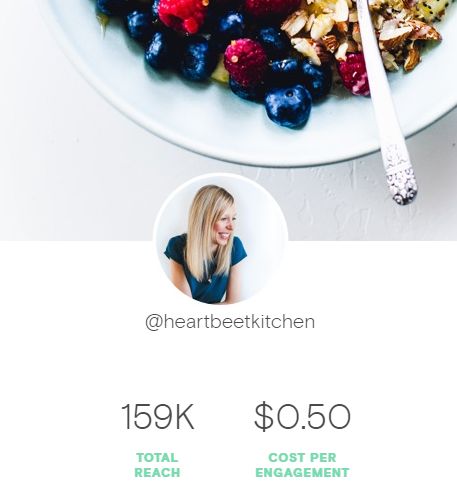
The influencer platform Tribe works with top brands such as Mcdonald’s, Olay, and Lego and works with the following categories:
- Food and drink
- Beauty and personal care
- Family and children
- Retail and E-commerce
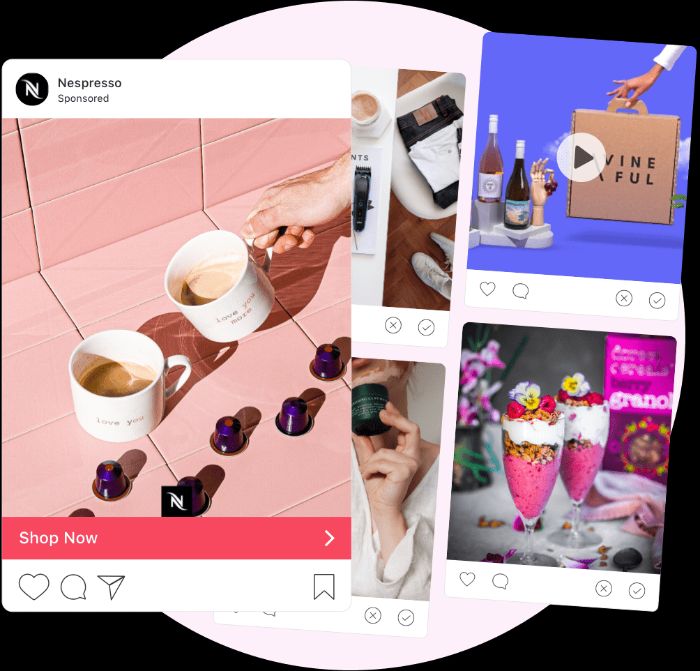
Upfluence pledges to take your influencer campaigns to the next level and enable you to work with twice as many influencers. The platform gives you plenty of features, including a searchable database across multiple social media platforms like TikTok and Facebook, and influencer profiles.
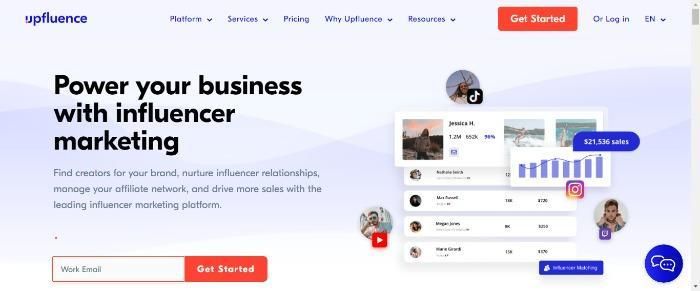
If you want to start working with influencers, just click on the red ‘Get Started Today’ link.
Impact of Influencers Conclusion
Content promotion and growing a company have never been more difficult, but times are changing, and you can’t underestimate the impact of influencers.
Consumers are tired of invasive ads and don’t always trust businesses. They do, however, trust influencers. Why? Because people trust them and their recommendations!
Thankfully, it’s not time-consuming or difficult to build a team of influencers, and they are one of the best ways to drive countless sales.
I’ve personally used influencers to grow each one of my businesses. They are great at what they do, and influencer marketing allows you to put your marketing strategy on autopilot.
Start by setting your campaign goals. You can’t have a good campaign without a perfect plan in place.
Next, manually search for influencers that relate to your brand or product. It’s a great way to save money.
Lastly, try tapping into existing marketplaces that are designed for influencer marketing and find the ideal person for your influencer campaign.
These will help you automate your marketing and save tons of time.
How has the impact of social influencers helped your brand?
from Neil Patel's Digital Marketing Blog https://ift.tt/xeZbHIc

No comments:
Post a Comment